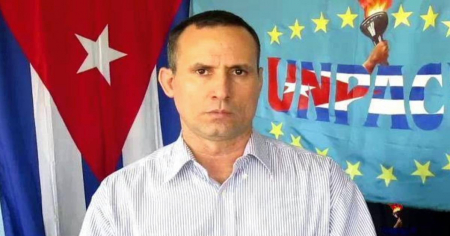The Vice President of the Supreme People's Tribunal (TSP) of Cuba, Maricela Sosa Ravelo, reported that following negotiations with the United States and mediation from the Vatican, the Cuban regime has granted 127 early releases since Wednesday.
Of these, 121 were for parole, a probationary system in which the behavior of inmates is monitored, and six were for extrapenal leave, which is granted for health reasons or other factors.
In statements to National Television, Sosa Ravelo stated that Cuban courts will continue to assess whether applicants meet the requirements established by the criminal execution law.
"The courts will continue to examine and assess whether the requirements of the execution law are met and the justification for the requests," he stated, emphasizing that the request is made by the regime and the final decision on each case depends on the evaluation of the judges and the prosecution.
Among those released are several political prisoners, including opposition leader José Daniel Ferrer and Luis Robles Elizastigu, as well as demonstrators from 11J, who were freed within the first 36 hours following the agreement.
According to the Cuban government, the gradual release of 553 individuals convicted of various crimes will be carried out under special conditions, meaning that those released will remain under supervision and must fulfill any pending legal obligations.
Cubalex, a human rights advocacy organization, has initiated an independent verification process of the cases, updating in real-time the list of those released. However, the number that the organization has been able to gather is much lower (only about 50 at the time of publishing this note) compared to the statistics from the government report.
Although the Cuban government has denied a direct connection between the releases and an agreement with the United States, sources from the Joe Biden administration confirmed that the pardons are linked to an agreement in which Cuba commits to releasing political prisoners.
This agreement also included the removal of Cuba from the list of state sponsors of terrorism and the suspension of Title III of the Helms-Burton Act.
The shift in U.S. policy occurred after Cuba was placed on the list of state sponsors of terrorism in December 2023, but in 2024, the Biden administration took a more conciliatory approach, leading to the release of prisoners and a reduction in economic sanctions.
Frequently Asked Questions about Releases in Cuba Following the Agreement with the U.S. and the Vatican
How many prisoners have been released in Cuba following the agreement with the U.S. and the Vatican?
The Cuban regime has announced that it has granted 127 early releases following negotiations with the United States and the mediation of the Vatican. Of these, 121 were for parole and six for extrapenal licenses. The release process includes a total of 553 individuals, although it will be carried out gradually.
Who are some of the political prisoners released in Cuba?
Among the political prisoners released are opposition leaders such as José Daniel Ferrer and Luis Robles Elizastigui, as well as demonstrators from July 11, 2021. These releases are part of an agreement mediated by the Vatican and negotiated with the United States.
What implications does the agreement between the U.S., the Vatican, and Cuba have?
The agreement implies that Cuba will release a significant number of political prisoners, which has led the United States to remove Cuba from the list of state sponsors of terrorism and suspend Title III of the Helms-Burton Act. This agreement has facilitated the releases and a reduction of economic sanctions.
What role has the Vatican played in the release of prisoners in Cuba?
The Vatican has acted as a mediator in the negotiations between Cuba and the United States, which has facilitated the release of political prisoners on the island. Pope Francis has promoted the spirit of reconciliation and hope, which has influenced this process.
Filed under:
